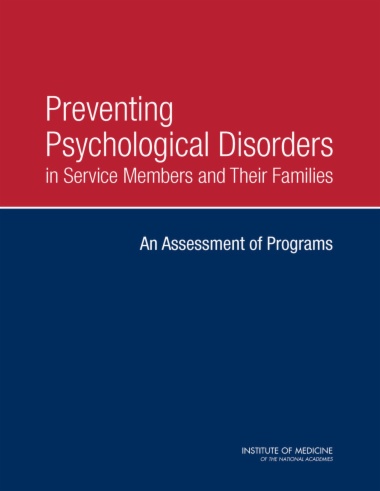

Being deployed to a war zone can result in numerous adverse psychological health conditions. It is well documented in the literature that there are high rates of psychological disorders among military personnel serving in Operation Enduring Freedom in Afghanistan and Operation Iraqi Freedom in Iraq as well as among the service members' families. For service members' families, the degree of hardship and negative consequences rises with the amount of the service members' exposure to traumatic or life-altering experiences. Adult and child members of the families of service members who experience wartime deployments have been found to be at increased risk for symptoms of psychological disorders and to be more likely to use mental health services.
In an effort to provide early recognition and early intervention that meet the psychological health needs of service members and their families, DOD currently screens for many of these conditions at numerous points during the military life cycle, and it is implementing structural interventions that support the improved integration of military line personnel, non-medical caregivers, and clinicians, such as RESPECT-Mil (Re-engineering Systems of Primary Care Treatment in the Military), embedded mental health providers, and the Patient-Centered Medical Home.
Preventing Psychological Disorders in Service Members and Their Families evaluates risk and protective factors in military and family populations and suggests that prevention strategies are needed at multiple levels - individual, interpersonal, institutional, community, and societal - in order to address the influence that these factors have on psychological health. This report reviews and critiques reintegration programs and prevention strategies for PTSD, depression, recovery support, and prevention of substance abuse, suicide, and interpersonal violence.